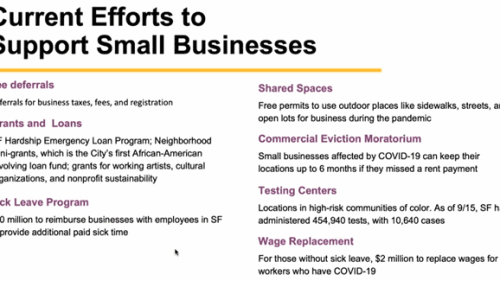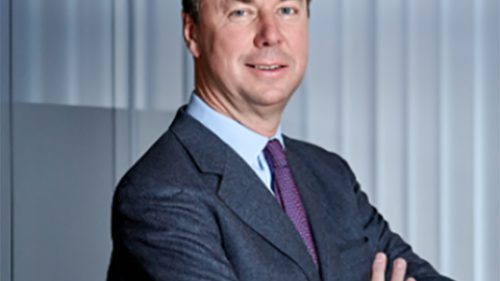Fall Meeting
The COVID-19 lockdown imposed by San Francisco in late February devastated the city’s small, independent businesses, and especially its restaurant scene. But creative city policies could help nimble retailers survive, panelists said at the ULI Virtual Fall Meeting session titled “Vibrant Retail Streets in the Age of E-tail and COVID-19: Is It Time for ‘Retail First’ City Policies?”
At a defining moment, the executive chairman of Belgian developer Immobel addresses how COVID-19 may change society and real estate.
ULI Global CEO Ed Walter discusses how the Fall Meeting will proceed in a new virtual format, which promises to provide our members with a world-class experience that we hope will be talked about for many years to come.
The ULI/Allen Matkins Capital Markets Roundtable, now in its fifth year, brings together investors, developers, lenders, managers, and intermediaries at the ULI Fall Meeting to share insights and perspectives on the current and future outlook for real estate capital markets. Panelists discussed what is working for their firms.
More than 50 cities now have set the goal of 100 percent reliance on renewable energy for the future. With buildings accounting for 75 percent of U.S. electricity consumption, achieving these commitments will require the active participation and cooperation of the real estate sector. Public officials from New York City and Washington, D.C., sat down with real estate and business leaders at the ULI Fall Meeting to address ways to collaborate on battling climate change.
Developers are under more pressure than ever to include features in their buildings that are good for the environment, good for their workers, and good for the surrounding community, said experts speaking at the ULI Fall Meeting.
Using available land is a key strategy for filling the District of Columbia’s need for affordable housing units, Mayor Muriel Bowser said at ULI’s Fall Meeting in Washington, D.C. Bowser recently articulated her vision to construct 36,000 additional housing units in the District by 2025.
The business performance of the organizations that occupy the nation’s office towers is increasingly supported by building design that creates excellent employee experiences and work environments. Office buildings must evolve to meet the current demands of the new workplace, according to panelists discussing the future of work at the Fall Meeting.
A ULI Fall Meeting session explored new ways of activating social nodes in urban spaces, using experiential design to allow cities’ social infrastructure to evolve. These new “nodes” include ever-evolving urban markets, multifunctional libraries, and even bank cafés.
Real estate investors and analysts who rate local government bonds already are grappling with how to evaluate the future risks from rapid climate change, panelists said at ULI’s 2019 Resilience Summit, part of the Fall Meeting in Washington, D.C.



